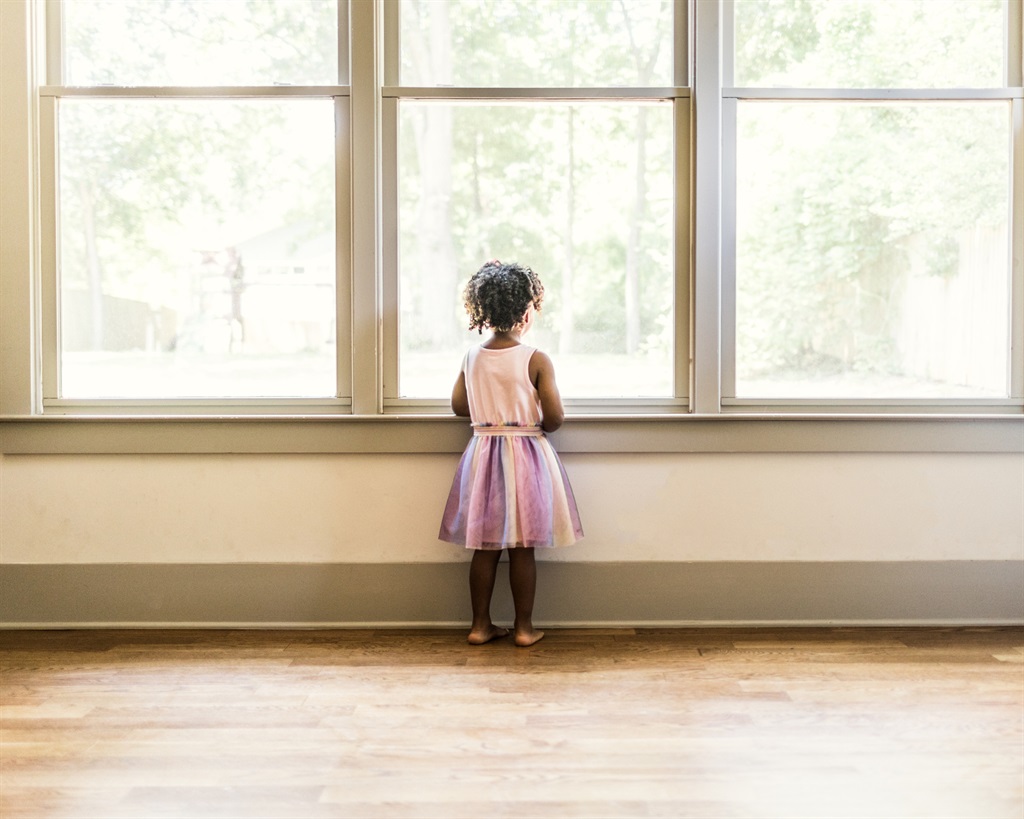
While mom Iva* and her family are coping right now, she says: "Earlier this year, when I asked my daughter what she wanted for her second birthday, she said 'people'
"She was referring to having a party with friends, but it struck me how human connection was more important for her than presents, particularly because of the lack of 'people' that lockdown caused," she adds.
Her toddler is not alone. International studies have shown that if children are not social enough at a young age, it can severely impact their development.
This is one article in a series on the impact the Covid-19 pandemic has had on ordinary South African families. Find the full series here: Behind the Mask
According to the results of a study conducted on children aged 3 months to 3 years, cognitive development in small children was negatively impacted by the Covid-19 pandemic.
The observational study by Brown University in Rhode Island, USA, found that children born during the pandemic have significantly reduced verbal, motor and overall cognitive performance compared to those born before the pandemic.
The study's lead author, Professor Sean Deoni, an associate professor of paediatrics at the university, reported that a lack of engagement with other children was partly to blame, and that decreased interaction could inhibit the growth of neural connections that drive child development.
ALSO SEE | Four ways social isolation affects children's development and mental health
'Living the same day over and over'
Iva and her husband, both in their late 30s, are not very social in terms of seeing friends, she says. But Iva adds that their family enjoy going out and spending time outdoors together. So, when the Covid-19 lockdown was implemented, they had to find other ways to entertain themselves and spend time together.
"My husband is a fantastic father, but he was often in long meetings on Zoom, so he was often unavailable to help me with our then 8-month-old daughter during the lockdown," she says.
As a teacher, Iva struggled with the lockdown because she had enjoyed working and going out.
"I became depressed and bored as I was not able to do this anymore," she admits. "Instead, I had to clean, cook and look after our baby daughter while my husband worked. It was like living the same day over and over again."
Iva adds that she felt really guilty about not fully appreciating the extra time with her daughter. But she really missed working. And although her daughter became clingy, it was age-appropriate behaviour and so it was hard to say whether it was a result of the lockdown.
ALSO READ | What is it about parenting in the 21st century that has us breaking down?
How life might have been different...
Dr Bev Evangelides, head of the Early Learning School at Reddam House Waterfall, says this is a typical scenario.
With the disruptive impact of Covid-19, which confined families to their homes, life experience for under-3s has been severely curtailed while caregivers try to balance work and child care, often within a stressful home-work environment.
Ensuring that young children have a sanctuary during their early learning stages, where their enquiring minds are stimulated to become creative and critical thinkers, and where they learn to grow independently, will impact their optimal development in later life, Evangelides says.
Since the pandemic-induced lockdown began, Iva admits: "I'm much less likely to hug people that I'm not super close [to] as it's safer for everyone to reduce physical contact. My gran is 92 years old, so I never hug her because I want to keep her safe," she explains.
Iva and her family have found other ways to connect now.
"I often video call people these days, instead of making a normal phone call. I got in the habit of wanting to see people's faces when I talk to them. I phone my gran on WhatsApp so that she can see my daughter, her great-granddaughter."
When asked how life might have been different if the lockdown hadn't happened, Iva says: "I wouldn't have had a nervous breakdown. I wouldn't have got depressed."
But she added that "I'm on anti-depressants and in therapy to learn to manage my anxiety better".
*Names have been changed.
Read the full series here: Behind the Mask
Chatback:
Share your stories and questions with us via email at chatback@parent24.com. Anonymous contributions are welcome.
Don't miss a story!
For a weekly wrap of our latest parenting news and advice sign up to our free Parent24 newsletter.




 Publications
Publications
 Partners
Partners











